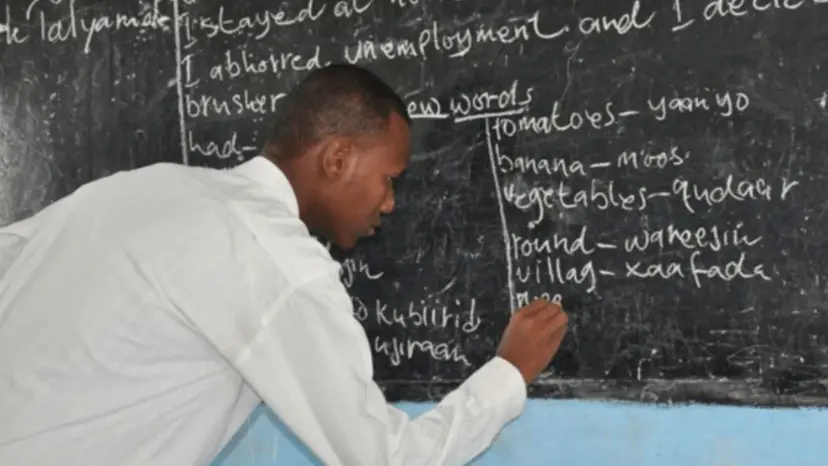The Federal Government has announced plans to end the use of chalkboards in all Nigerian schools by 2027, as part of a nationwide digital transformation in the education sector.
Minister of Education, Dr. Olatunji Alausa, disclosed this during a ministerial roundtable meeting in Abuja, emphasizing that the move aligns with President Bola Ahmed Tinubu’s vision to bridge the digital divide and modernize learning in the country.

According to Dr. Alausa, the government has already begun deploying technology-driven teaching tools in classrooms across several states.
“We launched a smart board two weeks ago,” he said. “By 2027, our goal is for every school in Nigeria to have a smart board. This is how we can deliver quality education to every child, regardless of their location, background, or parents’ social status.”
The Minister explained that smart boards will gradually replace traditional chalkboards, creating interactive and multimedia-rich classrooms where teachers can use digital textbooks, real-time learning tools, and videos to boost student engagement and understanding.
He further revealed that more than 60,000 learning tablets have already been distributed to pupils in Adamawa, Oyo, and Katsina States under the Airtech (Amazon Web Services) and BESDA programmes, with an additional 30,000 devices expected to be delivered soon.

Starting in 2026, the annual school census will also be fully digitalized, allowing real-time data tracking of student performance and educational outcomes nationwide.
However, Dr. Alausa raised concerns over the country’s alarming dropout rates, citing findings from the newly digitized Nigeria Education Management Information System (NEMIS).
“The information we’re seeing is scary,” he noted. “From 21 states that have uploaded data, we have about 30 million pupils in primary school. But by the time they get to Junior Secondary School 1, we lose between 10 and 20 million of them. Then, another four million disappear before Senior Secondary School.”
He described the situation — with an estimated 24 million children failing to progress beyond primary education — as a major threat to Nigeria’s human capital development.
To address this, the ministry has begun uploading biometric data of every pupil onto a central digital platform to improve tracking, planning, and policy formulation.
“It’s no longer manual. Paper will be completely phased out,” Alausa stated, adding that data from WAEC and JAMB would soon be integrated into the unified education database.




